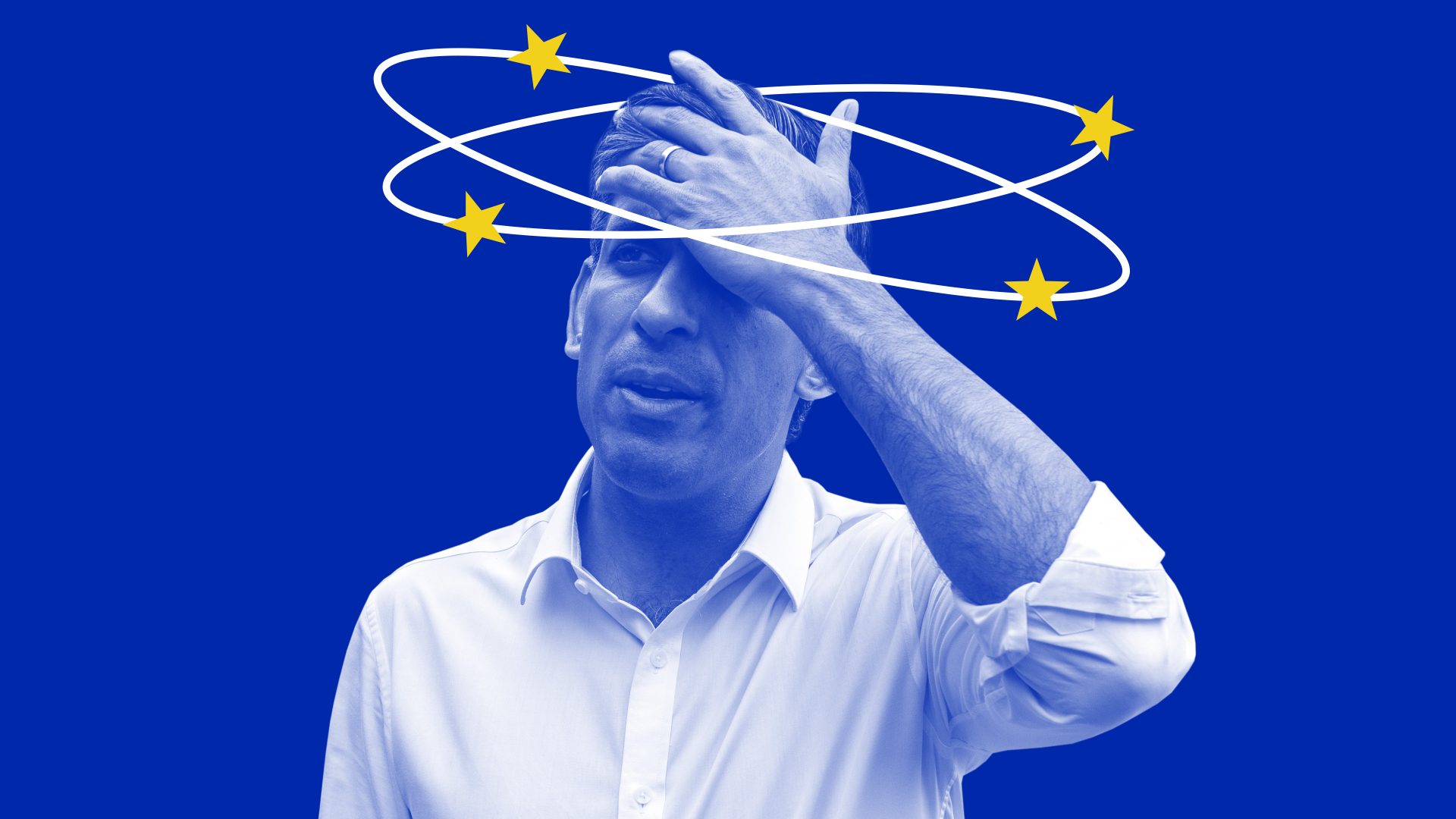“Germans, per se, have a strong propensity for discontent.” The source of this quote now has reason to be unhappy himself: Otto von Bismarck, the “iron chancellor” who surpassed even Angela Merkel and Helmut Kohl in tenure, has recently been cancelled.
The Green Party’s foreign secretary, Annalena Baerbock, has obliterated the Bismarck-Zimmer, a committee room in the foreign office, and renamed it the Hall of German Unity.
An ungrateful move, considering that Bismarck not only brought about German unity (well, the one in 1871) but also invented Baerbock’s job. He founded the foreign office.
Bismarck would probably keep his cool – “emotional outbursts have no place in politics,” he once said. His descendants are less calm.
They are “appalled and inexpressibly saddened to see our history treated this way,” family spokesman Alexander von Bismarck said, calling Baerbock a “moralising minister”.
His wasn’t the only criticism, so a new Bismarck-Zimmer was quickly created, in the remote Bonn branch of the ministry, equipped with a copy of his portrait. The original oil painting that hung in the foreign office is somewhere in administrative limbo.
Now that Bismarck has stopped breathing down Baerbock’s neck in silent disagreement from the wall, she plans to install an ambassador for – ta-daa! – feminist foreign policy. Presumably this is to contrast phallicist foreign policy, which seems to dominate everything everywhere all at once, but had she asked Bismarck, he would have advised: “We have to manage reality, not fiction”.
In reality, two very well-known women, Alice Schwarzer and Sahra Wagenknecht, are promoting their very own version of feminist diplomacy.
Schwarzer is Germany’s 80-year-old feminist icon, with a history of tax evasion. Wagenknecht, a 53-year old socialist veteran and MP, gained notoriety last year. Four days before Russia attacked Ukraine she proclaimed on TV: “We can be jolly glad that Vladimir Putin isn’t what he is made out to be: a crackpot nationalist who inebriates himself by shifting borders. No, he is a coldly calculating political power player.” She then accused the US of “basically asking for a Russian invasion. Maybe it’s what they wish for.”
A year on and none the wiser, this attention-seeking dual alliance for Putin PR has published a “Manifesto for Peace”. After dutifully mentioning Russia’s brutal attack it calls for “compromises on both sides”, demands negotiations (“At once!”) and an end to the “escalation of arms supplies” (“Now!”).
Obviously, the only negotiation Putin currently accepts is unconditional surrender, and yet, by the time you read this, more than 700,000 Germans will have signed the manifesto. Among them: Germany’s most prominent clergywoman, Margot Käßmann, actors and artists, scientists and other mostly ageing representatives of the left-wing intelligentsia. The peace-and-Putin-loving far right didn’t want to be left out, so AfD co-chair Tino Chrupalla also signed (and garnished his party logo with a peace dove).
Unsurprisingly, after Schwarzer/Wagenknecht had invited “everyone” to the “Rebellion for Peace” protest in Berlin last Saturday, the odd neo-Nazi and Reichsbürger showed up, too, among the 13,000-plus people.
There were peace flags, Russian flags and not a single Ukrainian flag.
Twitter was furious, newspapers called Schwarzer and Wagenknecht a “threat to democracy”, and Bismarck’s counsel that we should “afford the luxury to have an opinion of our own” was drowned out by all the noise.
The two women on stage next to the Brandenburg Gate predicted a third world war (which does scare over a third of the German public) and asked: “Could the (US and Nato’s) aim be not just to weaken but to annihilate Russia?” They were joined by fellow-Nato-guiltshifter and former brigadier Erich Vad, Merkel’s military adviser until 2013. He called for an end to “war rhetoric”.
The propaganda mastermind at the XXL Kremlin table couldn’t have wished for better. It must have been music to his ears that every time feminist Schwarzer mentioned feminist Baerbock the crowd reliably booed.
Baerbock is Putin’s most outspoken opponent in the German government. Had she only taken the time to get acquainted with good old Otto, she might have realised certain similarities. His dictum, “We’ll be an anvil if we don’t work on being a hammer”, is pretty much her approach on human rights issues.
And, if solicited, he would even share anti-burnout advice with her: “Follow my example, drink a bottle of champagne, eat a couple of dozen oysters and I am convinced that the state of the world will immediately appear in a more rosy light.”




